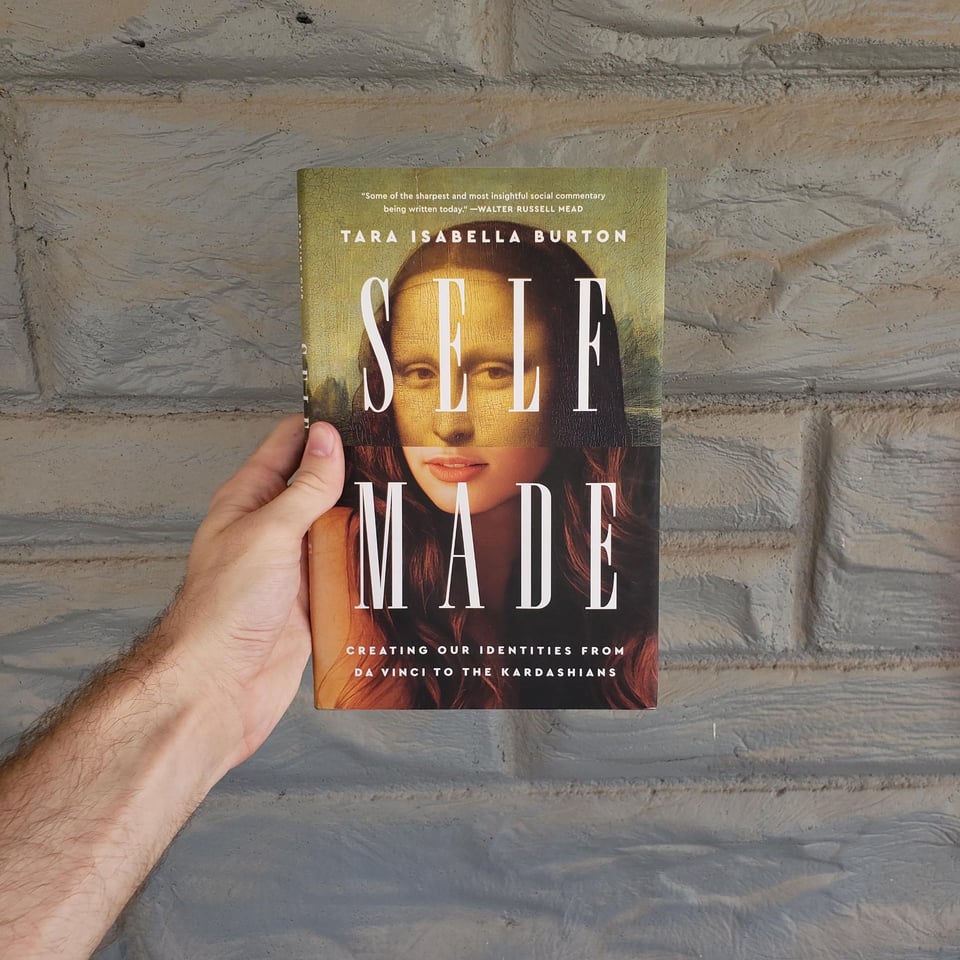Review: Self Made (2023)

“The story of self-creation, at its core, is not only a story about capitalism or secularism or the rise of the middle class or industrialization or political liberalism, although it touches upon all these phenomena and more. It is, rather, a story about people figuring out, together, what it means to be human. It is a story about trying to work out which parts we did not choose—are really, authentically us, and which parts are mere accidents of history, custom, or circumstance. It is, in other words, a story about people asking, and answering, and asking once again the most fundamental question human beings can ask: Who am I, really?
“And it is the story of how one answer—in my view, the wrong one—became dominant: I am whoever I want to be.”
This passage from Tara Isabella Burton’s book Self-Made (nonfiction; 2023) appears in the epilogue and is meant summarize the previous 200 pages. It’s an interesting and ambitious thesis. The problem is that Self-Made doesn’t come anywhere close to proving it. Worse, the book fails to even explore these intriguing ideas about selfhood and self-mythologizing in any significant depth.
The warning signs are in the book’s subtitle, which is ludicrously broad in scope: “Creating Our Own Identities from da Vinci to the Kardashians.” The book in fact begins, not with Leonardo da Vinci, but with a different Renaissance artist, the German painter Albrecht Dürer. Why? Burton tells us that Dürer, a prolific and early practitioner of self-portraiture who died in 1528, has been called “the inventor of the selfie.”
I rolled my eyes at that. To give Burton some credit, she doesn’t directly make that claim, laundering it instead through unnamed others. But she also fails to subject this anachronistic absurdity to any serious critique.
It’s a good example of why this book doesn’t work: Burton takes interesting contemporary phenomena like personal branding and looks backwards through history to cherrypick examples that fit her argument. If you want to find scattered evidence for a centuries-long backstory of the selfie, you probably can; but it doesn’t mean what you’re doing is good history.
That’s not to say that I learned nothing or found nothing of value in Self-Made. Some of the historical figures Burton profiles are fascinating, such as the charismatic proto-fascist Italian military leader, Gabriele D’Annuzio — a man who, in post-WWI Europe, carved out a weird and violent political fiefdom in which poetry readings were mandatory and dissent was ruthlessly crushed.
But the intriguing moments only added to my overall frustration because Burton never spends adequate time on any particular person or subject. The book mostly bounces from anecdote to anecdote, spending only long enough in a historical era to ransack it for quotes that signal something about “self-making” or “self-creation.”
I would love to read a book that reflects on our modern ideas of “the self” and our desire to shape how we are perceived by others (especially on sites like this one) and seriously examines the history of how we got here. Self-Made manifests that goal but unfortunately doesn’t achieve it.
Follow my bookstagram: @panthercitybooks